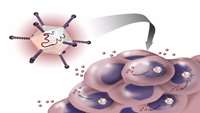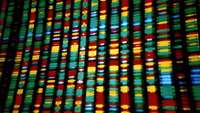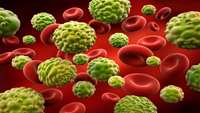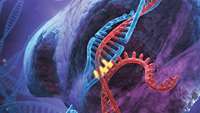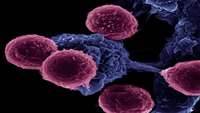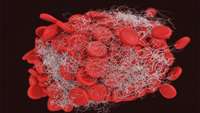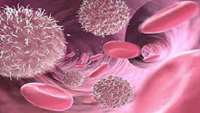Gene therapy restores auditory and vestibular function in a mouse mode
Because there are currently no biological treatments for hearing loss, we sought to advance gene therapy approaches to treat genetic deafness.
6 Companies Developing Cell Therapy Treatments for Diabetes6 Companies Developing Cell Therapy Treatments for Diabetes
With an aging population, obesity on the rise, and sedentary lifestyles becoming increasingly common, diabetes has grown into a major health concern in the U.S. and worldwide. According to the Center for Disease Control (CDC), 29.1 million people or 9.3% of the U.S. population has diabetes, including an estimated 8.1 million who are undiagnosed. According to the American Diabetes Association, the 2012 cost of this disease in the U.S. was “$245 billion per annum or approximately $500,000 every minute.”
A “Fourth-Generation” DNA Base Editor Could Replace CRISPR
The latest news in genetic science has been dominated by the CRISPR/Cas9 technique over the past five years. But a new “fourth-generation” DNA base editor could see CRISPR dethroned, according to a recent study published in Science Advances.
CD19-Specific CAR T-Cell Therapy Effective in Ibrutinib-Refractory CLL
Anti-CD19 chimeric antigen receptor (CAR)-modified T-cell therapy was highly effective in patients with high-risk chronic lymphocytic leukemia (CLL) who had previously failed treatment with ibrutinib, according to the results of a study published in the Journal of Clinical Oncology.
Immatics Initiates Personalized Adoptive Cellular Therapy in Patients with Relapsed And/Or Refractory Solid Cancers Using Its Pioneering Target Warehouse
Immatics, a leading company in the field of cancer immunotherapy, today announced that it has initiated enrollment of patients into a phase I trial of its first adoptive cellular therapy (ACT) IMA101, using its proprietary ACTolog® approach. The IMA101 phase I trial is the first industry-sponsored trial using products consisting of autologous cytotoxic T lymphocytes targeting defined tumor antigens using Immatics’ novel and proprietary target warehouse. This single-center study is now open for enrollment at The University of Texas MD Anderson Cancer Center in Houston, Texas.
Genome editing for scalable production of alloantigen‐free lentiviral vectors for in vivo gene therapy
Lentiviral vectors (LV) are powerful and versatile vehicles for gene therapy. However, their complex biological composition challenges large‐scale manufacturing and raises concerns for in vivo applications, because particle components and contaminants may trigger immune responses
New electric mesh device gives the heart an electromechanical hug
The study, published in the June 22, 2016 issue of Science Translational Medicine, points to a potential new way of improving heart function and treating dangerous arrhythmias by compensating for damaged cardiac muscle and enabling living heart muscle to work more efficiently.
Phase 1 clinical trial using mbIL21 ex-vivo expanded donor-derived NK cells after haploidentical transplantation
Relapse has emerged as the most important cause of treatment failure after allogeneic hematopoietic stem cell transplantation (HSCT). To test the hypothesis that NK cells can decrease the risk of leukemia relapse we initiated a phase-1 dose-escalation study of expanded donor NK cells infused before and after haploidentical HSCT for high-risk myeloid malignancies
Sangamo And Pfizer Announce First Patient Receives Treatment In Phase 1-2 Clinical Trial Evaluating SB-525 Investigational Gene Therapy For Hemophilia A
Sangamo Therapeutics, Inc. (Nasdaq: SGMO) and Pfizer Inc. (NYSE: PFE) today announced that the first patient received treatment in the Phase 1/2 clinical trial ("the Alta trial") evaluating SB-525, an investigational gene therapy for patients with Hemophilia A, a rare genetic blood disorder.
Engraftment and in vivo proliferation advantage of gene corrected mobilized CD34+ cells from Fanconi anemia patients
Previous Fanconi anemia (FA) gene therapy studies have failed to demonstrate engraftment of gene corrected hematopoietic stem and progenitor cells (HSPC) from FA patients, either after autologous transplantation or infusion into immunodeficient mice. In this study we demonstrate that a validated short transduction protocol of G-CSF plus plerixafor-mobilized CD34+ cells from FA-A patients with a therapeutic FANCA-lentiviral vector corrects the phenotype of in vitro cultured hematopoietic progenitor cells.


